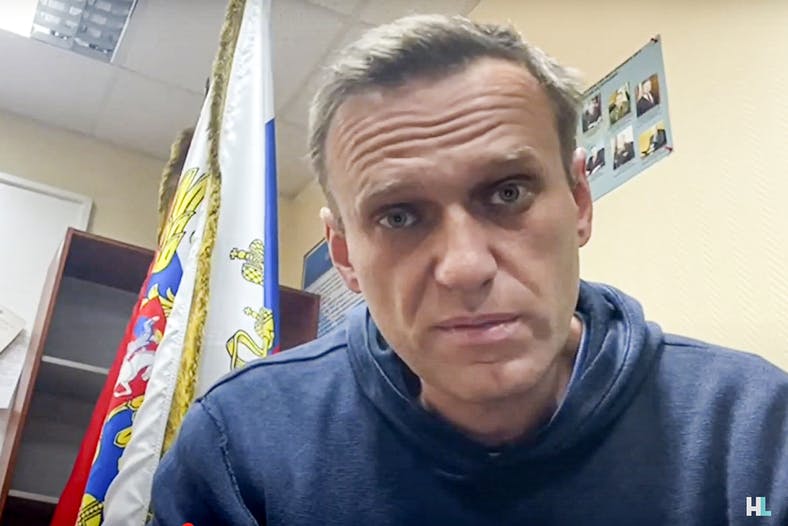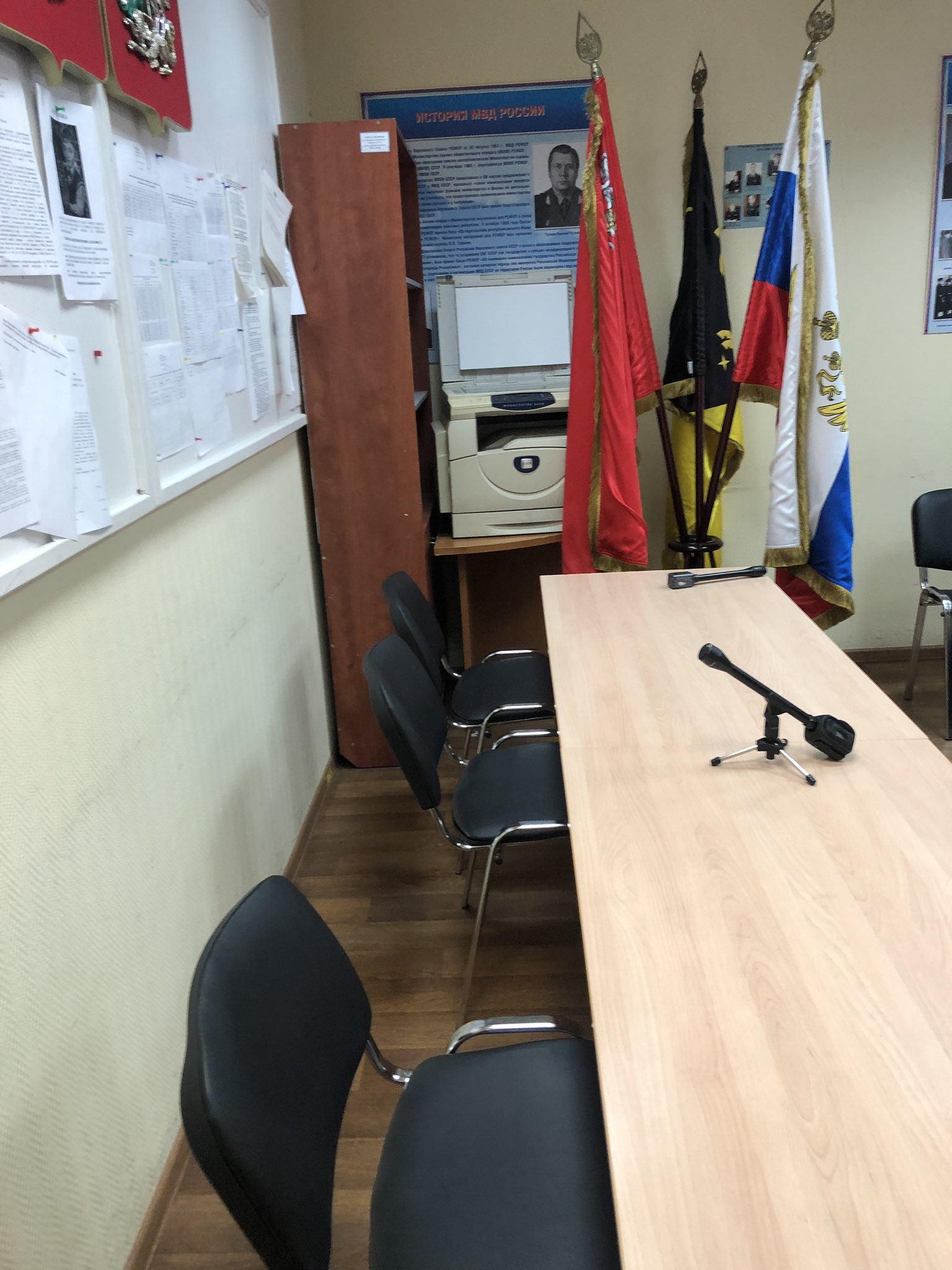RA’s Daily Russia News Blast- January 19, 2020

Today in Russia: Navalny sentenced to thirty days imprisonment – could it “derail his movement?”; Russian police officer suspected of leaking data of FSB officers accused of poisoning Navalny; Yulia Navalnaya; Sanctions?; Gazprom warns of possible Nord Stream 2 suspension
Tossed in jail. In a makeshift court hearing held in a police station where Navalny was not permitted access to his lawyer, the opposition leader was sentenced to thirty days’ imprisonment for breaching the terms of a 2014 suspended sentence. The reason for the breach, of course, was because he was poisoned and forced to seek emergency medical care in Germany and as a result failed to meet the terms of his suspended sentencing.
Sergei Radchenko, a professor at Cardiff University in the UK noted that in the corner of the room a poster read “History of the Ministry of Internal Affairs:”

The Internal Affairs Ministry” includes a rich tradition of kangaroo courts, going back to the times the Ministry of Internal Affairs was called the People’s Commissariat of Internal Affairs [NKVD]. Very symbolic,” Radchenko noted.
Kira Yarmysh, Navalny’s spokeswoman, said “They detained him at the border, took him to unknown places. His lawyer was not granted access, the hearing was carried out urgently right in the police station and he was detained for 30 days. This cannot even be called a parody of the rule of law.”
Kremlin Spokesman Dmitry Peskov, who has consistently refused to even use Navalny’s name in his briefings, claimed he was unaware of the opposition leader’s detention on Sunday claiming he was on vacation until January 18, while adding that he was a “sick” man with “delusions of persecution” and “traits of megalomania.” Peskov then cancelled his daily press briefing for yesterday, when his “vacation” was supposed to end.
Some worry that Navalny’s detention could just be the start of a larger crackdown against his supporters and the wider opposition, especially as the Kremlin and the ruling United Russia party fear Navalny’s “smart voting” strategy that proved successful in local elections late last year and his organization’s nationwide presence. As a result, “though the presence of local activists on the ground in Russia’s heartland could help boost the movement’s profile, some experts believe that Navalny’s arrest could lead to a broader crackdown on his supporters as Russia moves towards pivotal elections to its lower house of parliament, the State Duma, in the fall.”
A leaky ship. A Russian police officer in Samara is being investigated for leaking travel details regarding the FSB officers suspected of being responsible for Navalny’s poisoning, according to RBC.
“On Dec. 29, Samara investigators opened a criminal case into abuse of office against first lieutenant Kirill Chuprov, RBC cited unnamed sources familiar with the investigation and inside the police as saying. He is suspected of providing information from a classified database containing detailed travel information to a third party.”
The investigative site Bellingcat, which pieced together the information on the FSB officers, said it used flight manifests and phone records from Russia’s black market of stolen personal data, but if the authorities are right, they may have come from Chuprov.
Tikhanovskaya 2.0? Yulia Navalnaya, the wife of opposition leader Alexei Navalny, could be thrust into the spotlight as her husband faces the prospect of prolonged imprisonment following their return to Russia on Sunday:
While Navalny was fighting for his life, she regularly kept journalists informed of his condition, veiling her emotions behind dark sunglasses and a calm demeanour.
Then she would go back into the hospital to chase down doctors, whom Navalny’s allies have accused of being pressured by Russia’s security services to hide that he was poisoned.
Navalnaya also made sure medical experts that arrived from Germany were able to get access to her husband.
And in perhaps her boldest move, she directly addressed President Vladimir Putin — the man Navalny accuses of ordering the poisoning — requesting permission to let them bring her husband to Berlin.
Alexey’s sanctions. Kommersant wrote of the right that further sanctions could be imposed following the arrest of Navalny:
“The new year in foreign policy in relations between Russia and the West began with a scandal that sets the tone for their future confrontation. The detention at Sheremetyevo airport and the subsequent arrest of the main critic of the Russian authorities, Alexei Navalny, sparked outrage in the transatlantic community. Calls were again voiced for the introduction of new sanctions. Even those European states that had earlier called for dialogue with Moscow made tough statements. However, as Russian Foreign Minister Sergei Lavrov made it clear, for the Russian authorities their image in the international arena is important, but not of paramount importance.”
Jitters at Gazprom. Retuers wrote that “Russian gas producer Gazprom has acknowledged in a eurobond prospectus seen by Reuters on Tuesday that there are risks that the Nord Stream 2 gas pipeline project may be of suspended or scrapped due to challenges such as political pressure.” The prospectus read, “In exceptional circumstances, including owing to political pressure, such changes may result in a project being suspended or discontinued.”
Lead Photo: Navalny attends a makeshift court hearing in a police station (NAvalny Life YouTube via AP).











